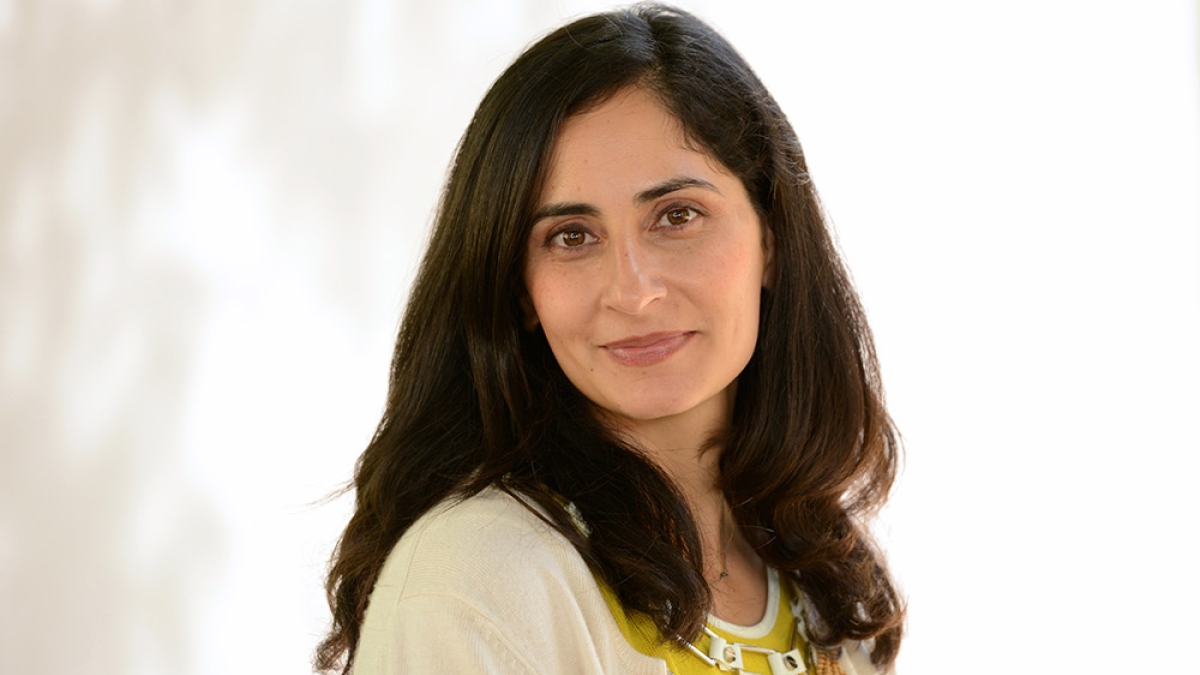Pardis Mahdavi joins ASU as director of the School of Social Transformation

Pardis Mahdavi’s research focuses on societal issues including human trafficking, migration, human rights, sexuality and transnational feminism.
The School of Social Transformation is excited to announce that Pardis Mahdavi has been named its new director.
Mahdavi is an accomplished social scientist with a strong leadership track record. She served as chair of anthropology, director of the Pacific Basin Institute and dean of women at Pomona College. And, most recently, she was acting dean of the Josef Korbel School of International Studies at the University of Denver.
“Pardis Mahdavi will make a strong director of SST thanks to her combination of administrative style, leadership skills and scholarly reputation,” said Krista Ratcliffe, professor and chair of ASU’s Department of English, who served as chair of the hiring committee. “She is welcoming as well as insightful and incisive, with the ability to form direct and concise responses in terms of both concepts and concrete examples.” Speaking specifically to Mahdavi’s managerial and leadership acumen, Ratcliffe added, “She also has proven strengths in budgeting, conflict negotiation, defining visions, growing majors and building community partnerships, including fundraising.”
As a scholar and anthropologist, Mahdavi’s research focuses on societal issues including human trafficking, migration, human rights, sexuality and transnational feminism. And she has published extensively on these topics. “Her prolific scholarly record has garnered her an international reputation as a scholar and a public intellectual whose values fit well within SST,” said Ratcliffe.
Commenting on her recent appointment, Mahdavi explained, “I was so drawn to SST because it is such a unique school that truly lives into the values of intentionality, intersectionality, interdisciplinarity and inclusion. This is truly the school so many of us have been waiting for.”
When she assumes her new role on July 1, Mahdavi succeeds President’s Professor Bryan McKinley Jones Brayboy, who has served as the school’s interim director for the past year.
“Pardis Mahdavi is a lovely choice to be our next school director,” Brayboy said. “She is an accomplished academic who is internationally respected for her work in the Middle East and around human trafficking. She is a seasoned leader with great experience as an administrator. She also happens to be visionary in ways that enhance and facilitate success in our school. In short, she embodies what our leaders need to be successful: strong academic credentials and accomplishments, great management skills and innovative ideas. I'm thrilled for us!”
Brayboy recently reflected on his time leading the school:
“SST is a vibrant place, focused on addressing significant social issues, guided by larger questions of justice. It means that our students, staff and faculty are laser-focused on addressing the challenges and creating, with community partners, solutions to the challenges. My experience as the interim director has been filled with moments of awe, wonder and curiosity as I watch our school community do their important work. This is challenging — and meaningful! — work framed by long hours of trying to facilitate the many efforts of our faculty, staff and students.”
Although Brayboy occupied the director role for the past year in an interim capacity, the two leaders who have served officially as director at SST since its inception in 2009 have been women. Mahdavi’s arrival makes her the third woman to lead the school. And she’s joining ASU alongside two other new leadership additions within the social sciences in The College of Liberal Arts and Sciences.
More Arts, humanities and education

Local traffic boxes get a colorful makeover
A team of Arizona State University students recently helped transform bland, beige traffic boxes in Chandler into colorful works…

2 ASU professors, alumnus named 2025 Guggenheim Fellows
Two Arizona State University professors and a university alumnus have been named 2025 Guggenheim Fellows.Regents Professor Sir…

No argument: ASU-led project improves high school students' writing skills
Students in the freshman English class at Phoenix Trevor G. Browne High School often pop the question to teacher Rocio Rivas.No,…

